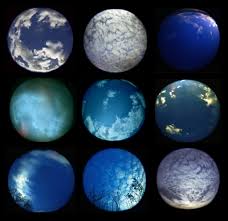Question: Do you use the synastry method of putting one person’s planets into another person’s houses?
Cindy, California
I do and I don’t. Simply putting one person’s planets into another person’s houses isn’t going to tell you much. The reason is that planets don’t carry equal weight.
For example, if someone’s Uranus falls in my third house, the method tells me that I could expect that person to shake up my immediate environment  in some way, or to stimulate my thinking or communication style, or to convince my brother to get a sex change. But if the third house isn’t emphasized in my chart, and I have no planets there, or if the partner’s Uranus doesn’t make any important contacts with my personal planets, then that Uranus falling in the third will have very little meaning. It won’t have no meaning, but it will have very little actual impact on the relationship. (Of course, it will matter a bit more if that Uranus is dominant in the other person’s chart –conjunct the Ascendant, or square the Sun, for example). I have a slightly different method.
in some way, or to stimulate my thinking or communication style, or to convince my brother to get a sex change. But if the third house isn’t emphasized in my chart, and I have no planets there, or if the partner’s Uranus doesn’t make any important contacts with my personal planets, then that Uranus falling in the third will have very little meaning. It won’t have no meaning, but it will have very little actual impact on the relationship. (Of course, it will matter a bit more if that Uranus is dominant in the other person’s chart –conjunct the Ascendant, or square the Sun, for example). I have a slightly different method.
Angle rulers to angles are the most important contacts between charts, followed by planets to angles. I look for those first. I also look for conjunctions to the nodes and the nodal rulers. The houses the Sun and the Moon fall in should also be noted; the person may cause me to see things in those houses I never saw before. (They aren’t called The Lights for nothing.)
Mainly, I look to angular houses. If someone’s planets are in my angular houses, they will make an impact on my life, even without exact contact with the angle. I will experience them directly. Also, if someone’s planet contacts an angle from the other side, it’s just as significant as a contact in the angular house. If someone’s planet is in my sixth, ninth, twelfth or third house, but is within close orb (note I say close orb, five degrees tops) of the angle, then that contact is significant. I also check to see what’s happening with the fifth and eighth houses, as these are both sexual houses. (A relationship graduates to the seventh house only when an element of commitment is involved.) The twelfth house can matter if there is significant contact, because the person whose 12th house it is might deify the person with the planets, or feel that something is owed or needs to be resolved in the relationship.
What I have found significant and helpful is to take any hard aspects to the relationship planets in one chart and place them in the houses of another. For example, if my partner has a Venus/Pluto opposition and it falls on my Asc/Desc angle, his troubles with jealousy, insecurity and ownership will directly affect my identity and how I relate to other people. If it falls in my fifth and 11th houses, there may be power struggles that affect my self-expression; at worst, he may try to isolate me from my community. Say that his Sun/Uranus square falls in my seventh and 10th houses. My partner’s struggle to express his Uranian nature may likely affect the stability of both my relationship and my career.
It’s interesting when houses get emphasized by element. If someone’s planets fall in my fire houses (houses 1, 5, and 9) that person will just make me zing; I’ll feel inspired and alive when he’s around. Water houses emphasized (4, 8, and 12) will make me feel emotional and in the mood to merge. I may let down my defenses more easily with this person. Air houses will fire my synapses and help me make connections I never could before (3, 7, 11). Earth houses (2, 6, 10) will bring out the practicality in me; the person will inspire me to get my act together, to accomplish things and become more grounded. This happens no matter what sign is on the cusp of the house, because the houses are a sequenced process, a working wheel in my life. Another’s planets there can flick the ‘on’ switch of that particular area.
I haven’t found sign emphasis to be that significant unless there is an imbalance in one of the charts. If I have no water and you have a lot, I may look to you to carry the emotional weight of the relationship. If I’m full of fire and you are all earth and water, you may dampen my enthusiasm for life once the initial attraction has cooled. But again, aspects outweigh element. We do the ‘planet in house’ thing to see what areas of life one person will stimulate in another, but without actual significant contacts between planets and points, placement won’t matter much.

Sounds lovely:
“If someone’s planets fall in my fire houses (houses 1, 5, and 9) that person will just make me zing; I’ll feel inspired and alive when he’s around. “
how would one interpret :
person A’s natal 8th house Pluto in Libra, conjunct Person B’s natal 12th house Pluto in Libra?
Person A’s Pluto in Libra falls in Person B’s 12th house.
These people both have Pluto in the same place. This is a generational aspect; you will have Pluto conjunct Pluto with everyone born around that time. What will happen when there are transits, etc. to these Plutos, is that the 12th house Pluto person will have 12th house type experiences involving Pluto, and the 8th house person will have 8th house experiences. You would need to look at the situation more carefully (what planets are transiting, what houses do they rule, etc.) to get any more detail.
is there less of an affect if the 7th house is in Gemini, and the planets fall in the house, but are of a different sign? because i know a couple where all her planets in leo, but they still fall into his 7th house and they are happily married. and really i mean the question in general, for when a planet falls into a house, but is of a different sign.
also you said something interesting about the planet directly conjuncting the degree of the house. so if for example the 7th house is at 14.46 gemini, and the venus is at 14.54 gemini, this has more impact than if the Sun is at 20.45 gemini and the mercury is at 28 gemini? i mean the venus would have a stronger impact than the sun or mercury? or how could you tell? i’m just making up numbers here. i thought all a planet had to do was fall into a house to impact it, i didn’t realize that being closer to the actual degree was a better indication of impact
Dawn,
I really enjoy your thou tough articles. I’ve been following them for years, having first seen them on Sasstrology.com.
You say that the angle conjunctions are the most important. What does a 7th house/4th house angle conjunction mean?
Also, what happens if someone’s house cusp is at 26 degrees Libra and you have Pluto at 25 degrees and Jupiter at 27 degrees…Would you consider Pluto conjunct that house?
Yes, of course, Pluto is conjunct within a degree; so is Jupiter. When the angles meet, no matter which ones, people feel as if they’re on the same path. They feel familiar with one another. As for the rest, I would need to see the whole synastry and don’t have time within this space.
Dear Dawn!
I would like to ask about jupiter conjunct ascendant exact and moon conjunct descendant exact in synastry. I can feel these energies very strong and very positively. He has very strong feelings to me and he is so kind and gracious with me from the beginning. As I know these aspects are so helpful in a relationship.
Thank you for the answer!
Eva
Hello,
I would like your help,
In my synastry we have the same angles and our planets in house make a mirror effect all!
Example: my sun in house 5 is found in his house 5 and his sun in house 10 is found in my house 10 etc…
What does that mean?
Thank you very much for your answer
None of this is important on its own, you have to look at the details of both charts.